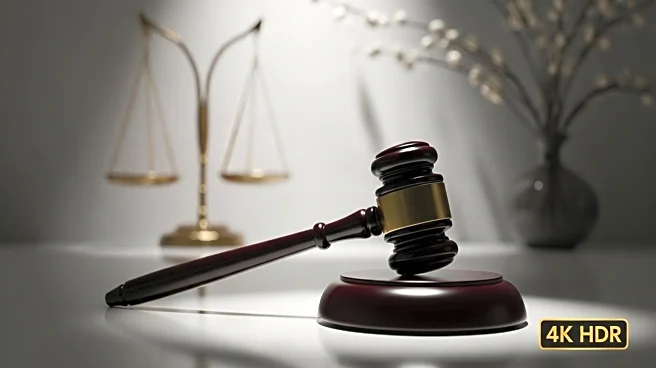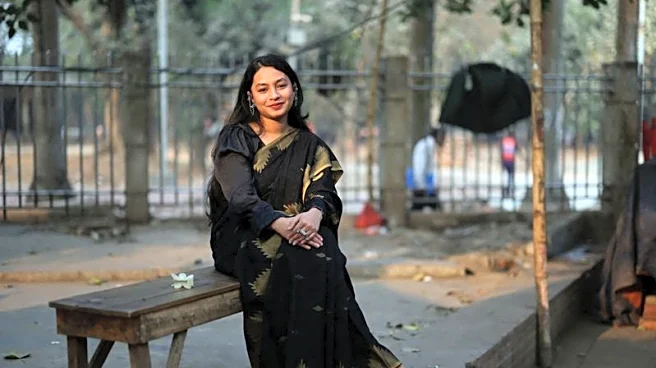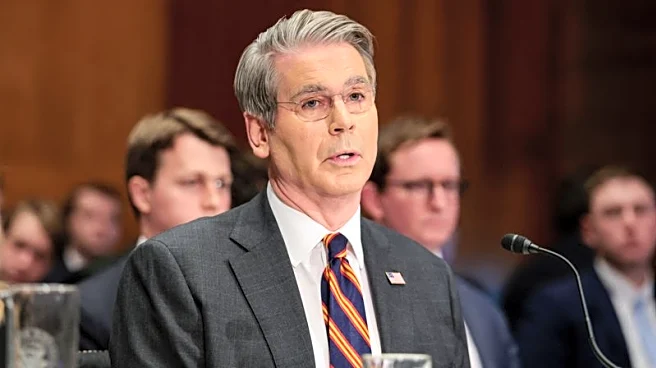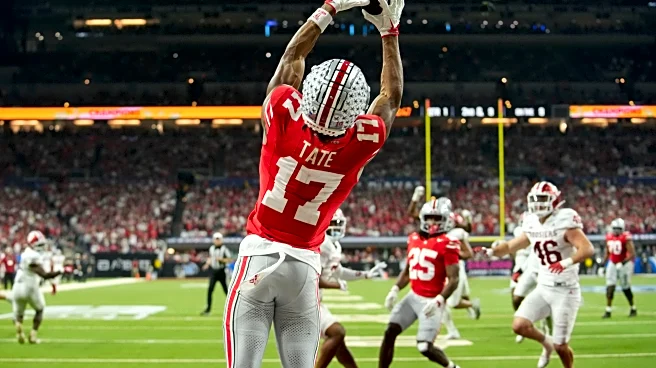What's Happening?
Several federal judges across the United States have decided to continue court cases involving the Trump administration despite the ongoing government shutdown. Typically, civil cases involving the federal government are paused during shutdowns due to the unavailability of Justice Department civil lawyers. However, at least ten district courts have issued orders to extend deadlines or pause cases, allowing some to proceed. Federal courts are currently operating normally, utilizing funds from sources other than congressional funding, which will last until October 17 if the shutdown persists. While criminal litigation continues due to constitutional rights, civil cases can proceed if judges order the Justice Department to continue its work. Notable cases include Judge Colleen Kollar-Kotelly's denial of the IRS's request to delay filing an administrative record and Judge Arun Subramanian's rejection of a motion to stay proceedings in an antitrust lawsuit against Live Nation Entertainment Inc.
Why It's Important?
The decision by judges to continue certain cases despite the government shutdown highlights the judiciary's role in maintaining constitutional functions and ensuring legal processes are not unduly delayed. This move affects various stakeholders, including federal agencies, corporations, and individuals involved in litigation against the Trump administration. The continuation of these cases ensures that legal challenges to government policies, such as immigration protections and antitrust actions, are addressed in a timely manner. This decision may impact public policy and government operations, as it forces the administration to allocate resources to defend its policies in court, even during a funding lapse.
What's Next?
As the government shutdown continues, more judges may decide to allow cases to proceed, potentially increasing pressure on the Justice Department to manage its resources effectively. The administration may need to prioritize which cases to defend actively, given the limited availability of civil lawyers. Stakeholders involved in ongoing litigation may continue to push back against government requests for delays, emphasizing the urgency and importance of their cases. The judiciary's decisions could influence future government shutdown protocols and the handling of civil litigation during such periods.
Beyond the Headlines
The continuation of court cases during a government shutdown raises questions about the balance between executive power and judicial oversight. It underscores the judiciary's independence and its critical role in upholding legal accountability, even when other branches of government face operational challenges. This situation may lead to discussions on the ethical and legal implications of government shutdowns and their impact on justice and public policy.











